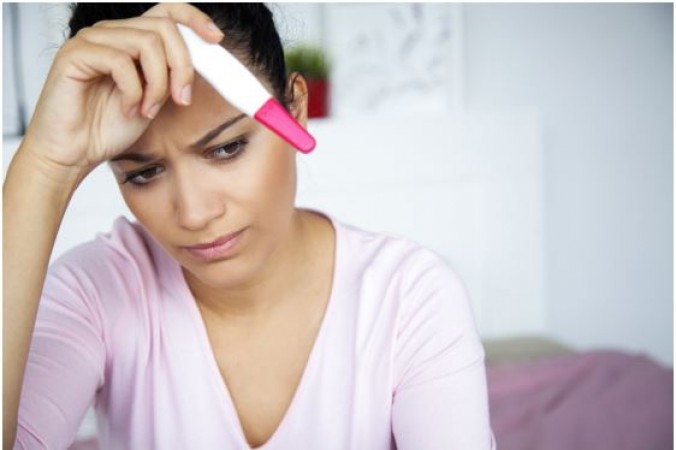
In this article, Dr. Hrishikesh Pai, a Leading doctor in India, talks about "What is Female Infertility and how to treat it."
Dr. Hrishikesh Pai is regarded as one of India's top IVF specialists. He has over 35 years of expertise in Obstetrics, Gynecology, and Infertility and has performed hundreds of cases in these domains. Since 1991, he has been in private practice as an IVF expert, gynecologist, an obstetrician-gynecologist.
Now let’s dive deep into the article to understand more about Female infertility, tests required, treatment, and medicines essential for it.
If you've been trying to conceive for a respectable amount of time and have been unsuccessful, consult with your doctor for an examination and treatment of infertility. Your doctor will take a thorough medical history and perform a physical exam on you.
The following fertility tests might be included:
Testing for ovulation
An over-the-counter ovulation prediction tool that can be used at home detects the rise in luteinizing hormone (LH) that happens just before ovulation takes place.
Ovulation can be confirmed by a blood test for progesterone, a hormone created after the ovulation cycle. It is possible that other hormone levels, such as prolactin, will be measured.
Hysterosalpingography
It is necessary to have hysterosalpingography performed to check for issues inside the uterus. The procedure is pronounced hysterosalpingography-GOG-ruh-fee and involves injecting contrast dye into your uterus and taking an X-ray to determine whether or not you have any difficulties.
The test also determines whether fluid is expelled from the uterus and leaks out of the fallopian tubes during pregnancy. If any abnormalities are discovered, you will almost certainly require additional evaluation.
Testing of the ovarian reserve
This testing aids in determining the quality and quantity of eggs accessible for ovulation at the time of the testing. This series of blood and imaging tests may be performed on women at risk of having decreased egg production, such as those over the age of 35.
Tests for additional hormones
In addition to ovulatory hormones, thyroid and pituitary hormones, which regulate the reproductive process, are measured in other hormone testing procedures.
Examinations utilizing imaging techniques
A pelvic ultrasound scan is performed to check for uterine or fallopian tube problems. Occasionally, a sonohysterogram, also known as a saline infusion sonogram, or a hysteroscopy, is committed to seeing details inside the uterus that are not visible on a standard ultrasound examination says Dr. Hrishikesh Pai, a premium IVF specialist in India.
This minimally invasive procedure entails creating a small incision behind your navel and introducing thin viewing equipment into your fallopian tubes, ovaries, and uterus to inspect your reproductive organs.
In addition to endometriosis and scarring, a laparoscopy can detect obstructions or anomalies in the fallopian tubes and problems with the ovaries and uterus.
When you undergo genetic testing, it can help you establish if you have any genetic alterations that could be causing your infertility.
Infertility treatment is determined by your underlying cause, age, how long you've been infertile, and personal preferences. A tremendous financial, physical, psychological, and time commitment is required for infertility therapy due to the complexity of the illness.
It is possible to have treatments that either aim to restore fertility through medicine or surgery or that can assist you in becoming pregnant through the use of sophisticated technology.
According to Dr. Hrishikesh Pai from India, Fertility drugs are medications used to regulate or stimulate the ovulation process. When a woman cannot conceive due to an ovulation issue, fertility medicines are the primary treatment available.
Fertility medicines, including follicle-stimulating hormone (FSH) and luteinizing hormone (LH), function similarly to natural hormones to trigger ovulation in women. Also, they're used in women who are ovulating to stimulate a better egg or produce an extra egg or eggs.
Clomiphene citrate
This medication, taken orally, induces ovulation by inducing the pituitary gland to release more FSH and LH, which increase the formation of an ovarian follicle holding an egg, resulting in the release of a fertilized egg. Women under the age of 39 who do not have PCOS are typically treated as their first line of defense.
The ovary is stimulated to generate numerous eggs due to these injectable therapies. Human menopausal gonadotropin, often known as Menopur, and follicle-stimulating hormone (FSH) are two types of gonadotropin medicines (Gonal-F, Follistim AQ, Bravelle).
It is also necessary to utilize a gonadotropin to mature the eggs and induce their release at the time of ovulation, which is human chorionic gonadotropin (Ovidrel, Pregnyl). There is some concern that gonadotropins increase the risk of conceiving multiple children and having a premature birth.
This medication is used when insulin resistance is a known or suspected cause of infertility, which is most often the case in women who have been diagnosed with PCOS. Metformin (Fortamet) is a medication that helps to reduce insulin resistance, which increases the likelihood of ovulation.
Letrozole
Letrozole (Femara) is a drug that belongs to a class of medications known as aromatase inhibitors, and it functions like that of clomiphene. Letrozole is typically prescribed to women under 39 who have PCOS.
When the pituitary gland produces excessive prolactin (hyperprolactinemia), a dopamine agonist such as bromocriptine (Cycloset, Parlodel) may treat ovulation issues, notes Dr. Hrishikesh Pai, a top IVF Surgeon in India.
England to begin administering the Covid vaccine to kids aged 5 to 11
FM urges G20 member nations to ensure expeditious distribution of COVID-19 vaccines
'Third wave is about to go, reduce or eliminate corona restrictions': Health Secretary